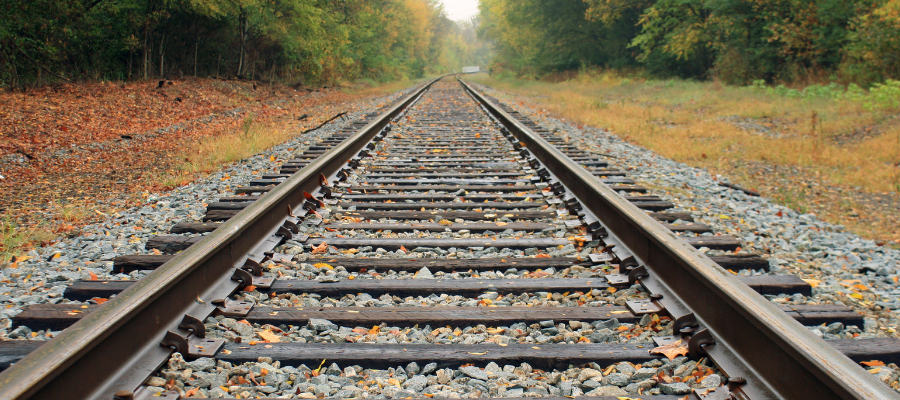🕒 Article read time: 3 minutes
Logistics UK reacts to the Value of Rail Freight report

April saw the launch of the Rail Delivery Group’s Value of Rail Freight, a report highlighting the benefits of rail freight to the UK (rail delivers around £2.5bn of economic and social benefits each year) while laying out the group’s asks to government and other stakeholders to support a sustainable and successful sector.
Logistics UK is keen for government and operators to focus on the need to optimise capacity for freight services and decarbonise the railways to achieve net-zero targets.
ENVIRONMENT
As the report outlines, the environmental benefits of moving goods by rail rather than by other modes are substantial. Use of rail freight takes seven million lorries off the roads each year, with just one freight train removing up to 76 HGVs from the road. In London alone, freight train flows take more than 1,000 lorry journeys off the road each working day. The report shows that on delivery of a decarbonisation strategy and the potential growth in domestic movements, the environmental benefits of rail use over road could increase by six to ten-fold.
Logistics UK has called consistently for a structured programme of rail electrification to help deliver net-zero emissions by 2050 and to support further private sector investment in the UK’s rail freight sector. In April this year, Logistics UK urged the government to begin a rolling programme of rail electrification, in a joint letter to Transport Secretary Grant Shapps MP, co-signed by more than 15 business, industry and campaign groups. The letter followed significant research by the Railway Industry Association (RIA) which concluded that decarbonisation of the rail sector is only possible with large-scale railway electrification and that while hydrogen and battery alternatives have a role on the network, they cannot act as a replacement. This latest research from RIA provides compelling evidence on the importance of electrification for both business and the environment.
CAPACITY
Rail freight can play a vital role in achieving the UK’s decarbonisation targets, but only if there is space for freight trains to run – currently, capacity on the network for freight services is constrained. Alongside private funding, the government has invested approximately £700m into improving the capacity and capability of the rail network for freight operations through Network Rail. Ports have also invested over £250m between 2007 and 2014 to connect their infrastructure to the rail network. But despite these investments, capacity remains inadequate; Logistics UK supports the Rail Delivery Group’s calls for existing capacity to be maximised.
Optimisation of current capacity will unlock greater availability of freight paths and enable faster, less frequently-stopping trains by reducing the need for looping of freight trains. As detailed in the Rail Delivery Group’s report, this would expand volumes carried and sectors served, and further improvements to support train lengthening would also allow larger amounts of materials to be carried.
The report also supports the view of Logistics UK that freight services run on certain semi-rural off-peak passenger routes deliver greater economic value than passenger use. Replacing some off-peak passenger services going into a dense area with construction and aggregates trains may be preferable in terms of economic value. Logistics UK is urging the government to heed the report's findings and allow freight operators access to these lines where the economic value holds strong.
The operation of heavier and longer trains and increased utilisation of wagon space would also increase capacity, as well as more effective timetable planning, signalling systems and infrastructure improvements. And, once operational, a solution such as HS2 would shift long-distance passenger traffic from the current rail network onto its new line, freeing up space on the existing rail network for up to 144 extra freight trains per day. However, the government must first pledge to allocate a portion of this released capacity for freight services.
“The social, economic and environmental benefits of rail freight to the UK are uncontested,” said Zoe McLernon, Multimodal Policy Manager, Logistics UK, “the government must now work with industry to support its growth, utilise rail effectively to help achieve its net-zero target, as well as its Build Back Better and Levelling Up strategies. Logistics UK will continue to work with government and other key stakeholders to unlock the full potential of the rail network and ensure rail reform works for UK PLC.”
*www.logistics.org.uk/rail
Published On: 20/05/2021 17:00:15

Comments Section
If you are a Logistics UK member login to add comments.